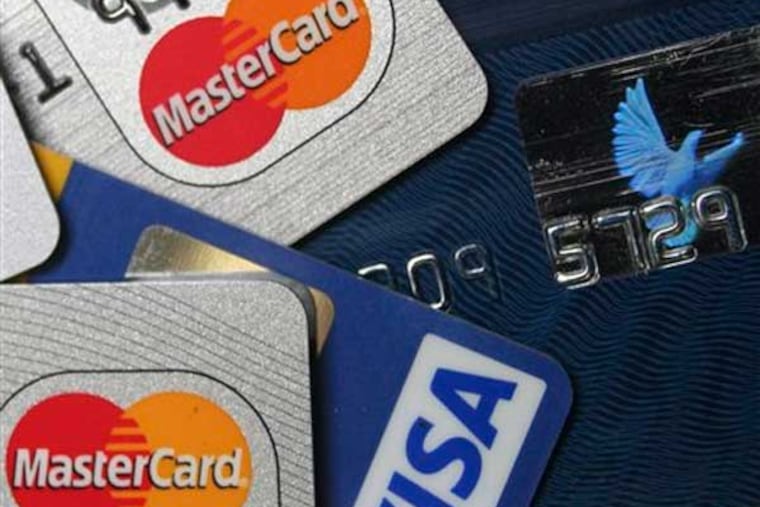Errors can persist in consumers' credit records
Nearly 40 percent of consumer complaints about errors on credit reports center on information provided by debt collectors. But the nation's three main credit bureaus - although legally required to address such complaints - rely on the collection companies and other creditors to investigate most disputes and rarely forward documentation sent by consumers when they challenge credit-report mistakes.

Nearly 40 percent of consumer complaints about errors on credit reports center on information provided by debt collectors. But the nation's three main credit bureaus - although legally required to address such complaints - rely on the collection companies and other creditors to investigate most disputes and rarely forward documentation sent by consumers when they challenge credit-report mistakes.
Those are among the key findings in a new study by the federal Consumer Financial Protection Bureau, which recently began supervising Experian, Equifax, TransUnion, and other large companies in the $4 billion-a-year credit-reporting industry.
CFPB director Richard Cordray said the study also found that only about 44 million consumers check their credit reports each year, even though they have been entitled since the mid-2000s to a free annual report from each of the big three agencies.
"If consumers are not checking their reports, these errors can persist and pop up when a consumer can least afford them, blocking them [from] borrowing money for a larger purchase or causing them to pay a higher rate of interest than they should," Cordray told reporters Wednesday.
A frequent target of consumer complaints, the credit bureaus each maintain files on more than 200 million American adults. Their files are used to generate the familiar three-digit credit scores, such as FICO scores, used by mortgage lenders, car dealers, and others to quickly assess creditworthiness. Credit data can also affect decisions by insurers, landlords, and employers.
The study said the three main national consumer reporting agencies, or NCRAs, received about eight million complaints about mistaken reports last year, involving 32 million to 38 million disputed items. Each year, that means that consumers dispute data associated with a small fraction of a total of 1.3 billion "trade lines," the term for a section on a consumer's report based on data from a particular creditor.
But there are signs that some furnishers of this information are more careful than others. Dispute rates vary from 0.05 percent to 2 percent among the 100 largest furnishers, the study found. Overall, fewer than 0.2 percent of credit-card trade lines are the subject of dispute. Disputes over trade lines from debt collectors or debt buyers are more than five times as likely.
Although the study drew no conclusions about how disputes are handled, it may lend support to consumer advocates and lawyers who focus on credit-reporting problems and have long complained about industry reliance on automated systems.
For example, when consumers dispute errors by using online forms, they are asked to identify one or two of 29 "reason codes" characterizing the disputes, in addition to offering narrative descriptions of what appears wrong. When they dispute errors by phone or mail, an NCRA representative selects the codes and may add a narrative statement.
About 15 percent of such disputes are resolved, for or against the consumer, by the bureaus themselves. The rest are forwarded electronically by software called e-OSCAR, for Online Solution for Complete and Accurate Reporting. About one-fourth of the reports include brief narratives; the system's limit is 255 characters. But the CFPB said items offered as evidence, such as billing records or letters from creditors, are rarely forwarded.
Later this month, the Federal Trade Commission is expected to report findings from a separate study on the frequency of errors in credit reports - long a controversial topic.
Since October, the CFPB has been accepting individual consumers' complaints about problems with the credit bureaus; 2,300 have been received since Oct. 22, the agency says.
To submit a complaint, go to www.consumerfinance.gov or call 855-411-2372. To request your free credit reports, go to www.annualcreditreport.com.